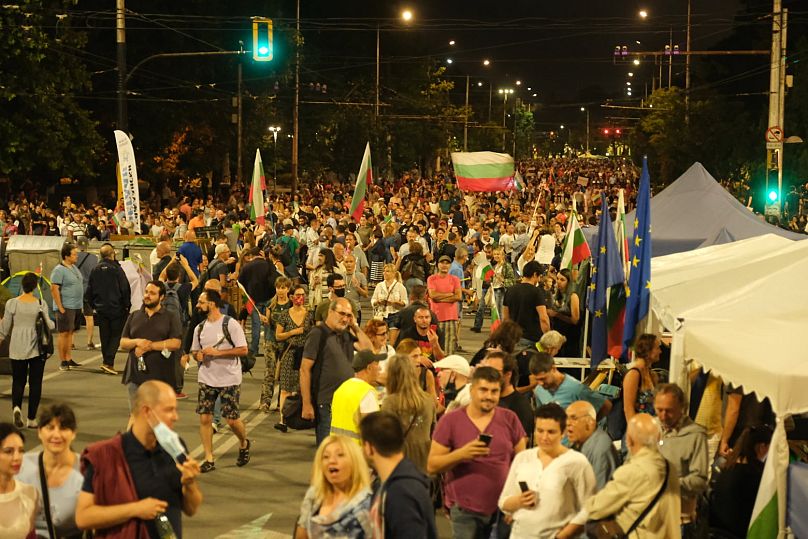As the unrest in Bulgaria closes in on nearly two months, we talk to some of the protesters on the ground who have been involved in the struggle.
It’s been nearly two months now since Bulgarian protesters took to the streets demanding Prime Minister Boyko Borissov and his government resign.
The daily protests claim Borissov's administration has links to the mafia and is engulfed in corrupt practices.
Among the demonstrators is software engineer Verzhinia, who says their demands are clear: “There are many people with good professions and a good state of living who want to live in a normal country, a country without corruption.”
According to Transparency International's Corruption Perception Index, Bulgaria is the most corrupt country in the EU. It is also the poorest. However, it is photos of PM Borissov sleeping with a gun and wads of cash by his bed, as well as alleged corruption scandals, that brought 31-year-old lawyer, Yavor, to the street.
“People just want to see some kind of change," he said. "They are not sure what kind and they are not sure what should come after the current government, but the one thing that unites everyone is that the current government must go.”
When asked about what the EU should do, he replied:
"I feel like they have been very complicit when it comes to Borisov. He is very convenient for everybody. He is not like Viktor Orban or the Polish Prime Minister. He is not causing trouble. He is always agreeing with every proposal that comes from Brussels. So that is why he is very convenient for them."
The state of democracy and rule of law in Bulgaria came up last week inside the European Parliament during a closed-door meeting chaired by Dutch MEP, Sophie In’t Veld. She called upon Bulgarian authorities for further clarification regarding the corruption allegations and asked the European Commission to stop turning a blind eye towards it:
“If we want to give support to people in Belarus who are clamouring for democracy, the rule of law and fundamental rights, then we ourselves should be beyond reproach," she said. "I think the European Commission, and Mrs. von der Leyen in particular, need to show that they do not just support democratisation outside the EU, but that they are also standing firm for the rule of law, fundamental rights and democracy within the European Union.”
It is a tricky situation for Brussels though, as the Bulgarian PM is well connected in EU circles and a long-term member of the European People’s Party (EPP) – the Europe-wide political grouping of his own party, GERB.
And, as Amanda Paul from the European Policy Centre says, things can get complicated when dealing with member states' internal political issues.
“It’s always a delicate issue looking at situations in member states," she said. "We have seen that before with Hungary and Poland where perhaps the response of the EU as a club was not as quick as it could have been because those countries are part of the club, which complicates things.”












